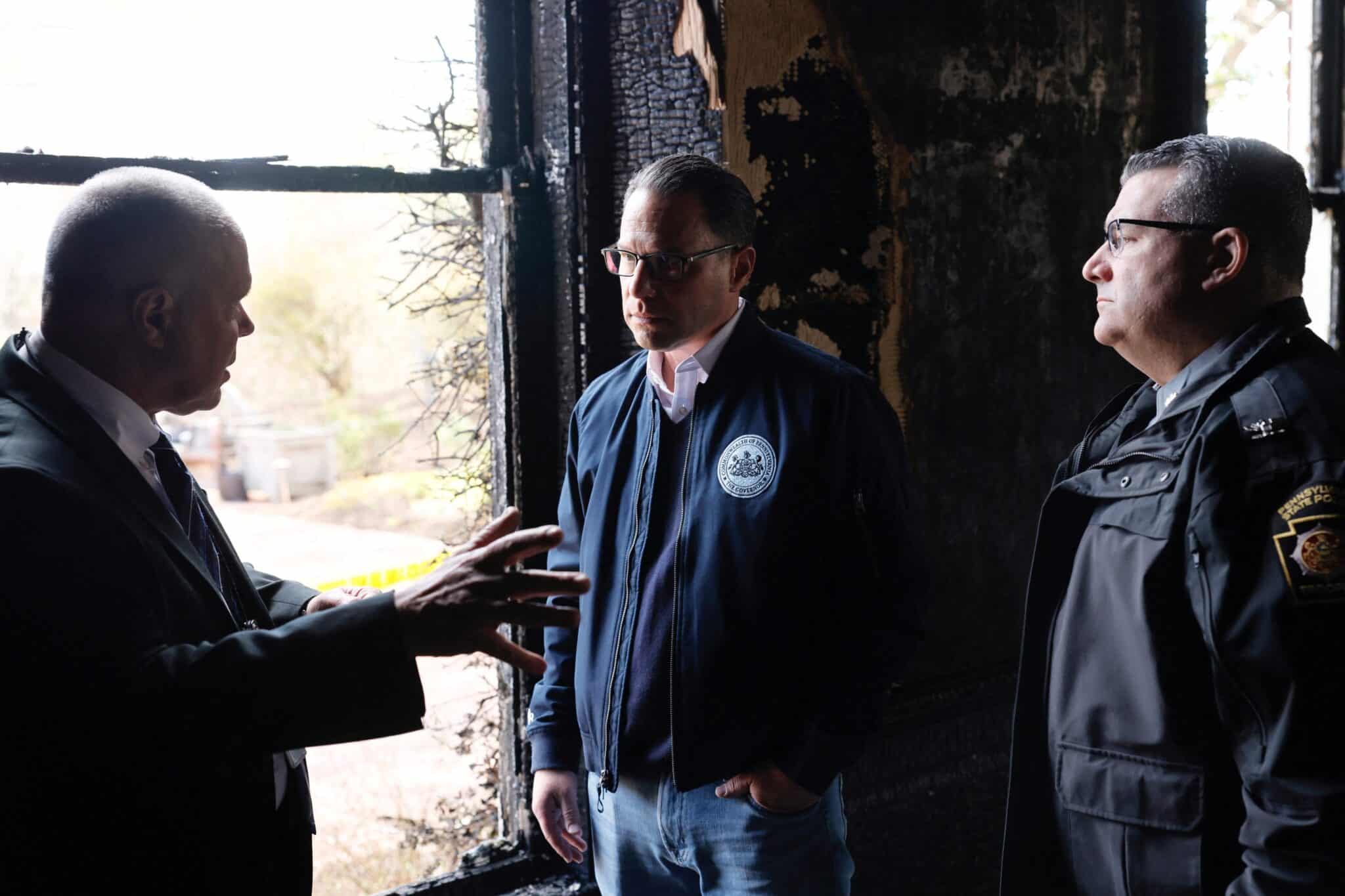Sometimes the key to growing our faith is a return to the basics.
In 1205, Saint Francis of Assisi heard these words in a vision: “Rebuild my church, for you see it is falling into ruin.” Every so often, religious institutions become rigid and need to be revived and reborn. Catholics teach that “the Church was reformed but is always in need of reformation.” Reformation is the perpetual process of conversion that is needed by all individuals and by all institutions. When Churches become machines more than movements, it’s a sign that they must shake off historical and cultural calcifications so they can continue evolving as a living movement. Just as in Scripture and our own lives, growth is never in a straight line; it is often three steps forward and two steps backward.
At a time when so many people are leaving the Church and Christianity’s reputation may seem irreparably damaged, we again need to rebuild our faith “from the bottom up,” upon its strong foundation.
My spiritual father, Saint Francis, was a master of making room for the new and letting go of that which was tired or empty. He was ready for absolute newness from God and, therefore, could also trust fresh and new attitudes in himself. His God was not tired, and so he was never tired. His God was not old, so Francis remained forever young.
Francis was the first to create a living Nativity scene, bringing to life the revolutionary way God revealed God’s self in the vulnerability of a baby in a manger. The incarnation of God in Jesus was foundational to Francis, and he wanted others to experience its life-changing power.
Francis was at once very traditional and entirely new in the ways of holiness. Franciscanism is not an iconoclastic dismissal of traditional Christian images, history, or culture, but a positive choosing of the deep, shining, and enduring divine images that are hidden beneath the too-easy formulas. It is no fast-food religion, but slow and healthy nutrition, drawing from what Francis called “the marrow of the Gospel.”
Both Jesus and Francis did not let the old get in the way of the new, but like all religious geniuses, revealed what the old was saying all along. Francis both named and exemplified that “first, churchless incarnation in the human heart.” But somehow he also knew that it was the half-knowing, organized Church that passed this shared mystery on to him and preserved it for future generations. He had the humility and patience to know that whatever is true is always a shared truth; and institutions, for all their weaknesses, make this widely shareable, historical, and communal.
Both Jesus and Francis were “conservatives” in the true sense of the term: They conserved what was worth conserving—the core, the transformative life of the Gospel—and did not let accidentals get in the way. They then ended up looking quite “progressive,” radical, and even dangerous to the status quo. This is the biblical pattern, from Abraham to Moses, to Jeremiah, Job, John the Baptist, Mary, and Joseph.
Embracing Change
Transformation often happens when something old falls apart. The pain of disruption and chaos invites the soul to listen at a deeper level and move to a new place. The mystics use many words to describe this chaos: fire, darkness, death, emptiness, abandonment, trial, the evil one. Whatever it is, it does not feel good and it does not feel like God. We will do anything to keep the old thing from falling apart. This is when we need patience, guidance, and the freedom to let go instead of tightening our controls and certitudes. Perhaps Jesus is describing this phenomenon when he says, “How narrow the gate and constricted the road that leads to life. And those that find it are few” (Mt 7:14). Not accidentally, he mentions this narrow road right after teaching the Golden Rule. Jesus knows how much letting go it takes to “do to others whatever you would have them do to you” (7:12).
Transformation usually includes a disconcerting reorientation. Change can either help people find a new meaning, or cause people to close down and turn bitter. The difference is determined by the quality of our inner life, or what we call “spirituality.” Change of itself just happens; spiritual transformation is an active process of letting go, living in the confusing dark space for a while, and allowing yourself to be spit up on a new and unexpected shore.
In the moments of insecurity and crisis, “shoulds” and “oughts” don’t really help; they just increase the shame, guilt, pressure, and likelihood of backsliding. It’s the deep “yeses” that carry you through. Focusing on something you absolutely believe in, that you’re committed to, will help you wait it out.
Worth the Wait
Love wins over guilt any day. It is sad that we settle for the short-run effectiveness of shaming people instead of the long-term life benefits of grace-filled transformation. But we are a culture of progress and efficiency, impatient with gradual growth. God’s way of restoring things interiorly is much more patient—and finally more effective. God lets Jonah run in the wrong direction, until this reluctant prophet finds a long, painful, circuitous path to get back where he needs to be—in spite of himself! Looking in your own “rearview mirror” can fill you with gratitude for God’s work in your life.
In so many places, there are signs of the Holy Spirit working at all levels of society. The Church might well have done its work as leaven, because much of this reform, enlightenment, compassion, and healing is outside the bounds of organized religion. Only God is going to get the credit.
The toothpaste is out of the tube. There are enough people who know the big picture of Jesus’ thrilling and alluring vision of the reign of God that this Great Turning cannot be stopped. There are enough people going on solid inner journeys that it is not merely ideological or theoretical. This reformation is happening in a positive, nonviolent way. The changes are not just from the top down, but much more from the bottom up. Not from the outside in, but from the inside out. Not from clergy to laity, but from a unified field where class is of minor importance. The big questions are being answered at a peaceful and foundational level, with no need to oppose, deny, or reject.
I sense the urgency of the Holy Spirit, with over 7 billion humans now on the planet. There is so much to love and embrace. I am convinced that the only future of the Church, the one body of Christ, is ecumenical and shared. Each of our traditions have preserved and fostered one or another jewel in the huge crown that is the cosmic Christ; only together can we make up the unity of the Spirit, as we learn to defer to one another out of love.
A Solid Foundation
If we are going to rebuild Christianity from the bottom up, what is the foundation upon which we’re building? Love is our foundation and our destiny. It is where we come from and where we’re headed. As Saint Paul famously says, “So faith, hope, and love remain, these three; but the greatest of these is love” (1 Cor 13:13).
Saint Augustine said, “The Church consists in the state of communion of the whole world.” Wherever we are connected, in right relationship—you might say “in love”—there is the Christ, there is the authentic “body of God” revealed. This body is more a living organism, a dynamic and growing body, than any formal organization.
God’s love is planted inside each of us as the Holy Spirit who, according to Jesus, “will teach you everything and remind you of all that [I] told you” (Jn 14:26). Love is who you are.
Only God in you can know God. You cannot know God in an intimate, experiential way with your mind alone. You are going to need full-access knowing, which many of us call nondual consciousness, the contemplative mind, or even the “mind of Christ” (1 Cor 2:16).
Great religion seeks utter awareness and full consciousness, so that we can, in fact, receive all. Everything belongs and everything can be received. We don’t have to deny, dismiss, defy, or ignore. What is, is the great teacher. The purpose of prayer and religious seeking is to see the truth about reality, to see what is. And at the bottom of what is, is always goodness. The foundation is always Love.
Enlightenment is to see and touch the big mystery, the big pattern, the Big Real. Jesus called it the reign of God; Buddha called it enlightenment. Philosophers might call it Truth. Many of us see it as Foundational Love.
The central practice in mature spirituality, therefore, is that we must remain in love (Jn 15:9). Only when we are eager to love can we see love and goodness in the world around us. We must ourselves remain in peace, and then we will find peace over there. Remain in beauty, and we will honor beauty everywhere. This concept of remaining or abiding (Jn 15:4-5) moves religion out of any esoteric realm of doctrinal outer space where it has been lost for too long. There is no secret moral command for knowing or pleasing God, or what some call “salvation,” other than becoming a loving person in mind, heart, body, and soul. Then you will see what you need to see. Jesus did not say, “Thou shalt be right”; Jesus said, “This is my commandment, ‘Love one another'” (Jn 15:12).
I pray that you may be firmly planted in the breach between the world as it usually is (Power) and the world as it should and could be (Love). Both love and power are the necessary building blocks of God’s peaceful kingdom on earth. Love utterly redefines the nature of power. Power without love is mere brutality (even in the Church), and love without power is only the sentimentality of private lives disconnected from the Whole. The Gospel in its fullness holds power and love together, creating new hope and healing for the world.
May you go and grow forward as a breach-mender, restoring the places in which God’s presence has become hidden or misrepresented. Have courage and be tender.








